Intestinal health a hot topic at VIV MEA
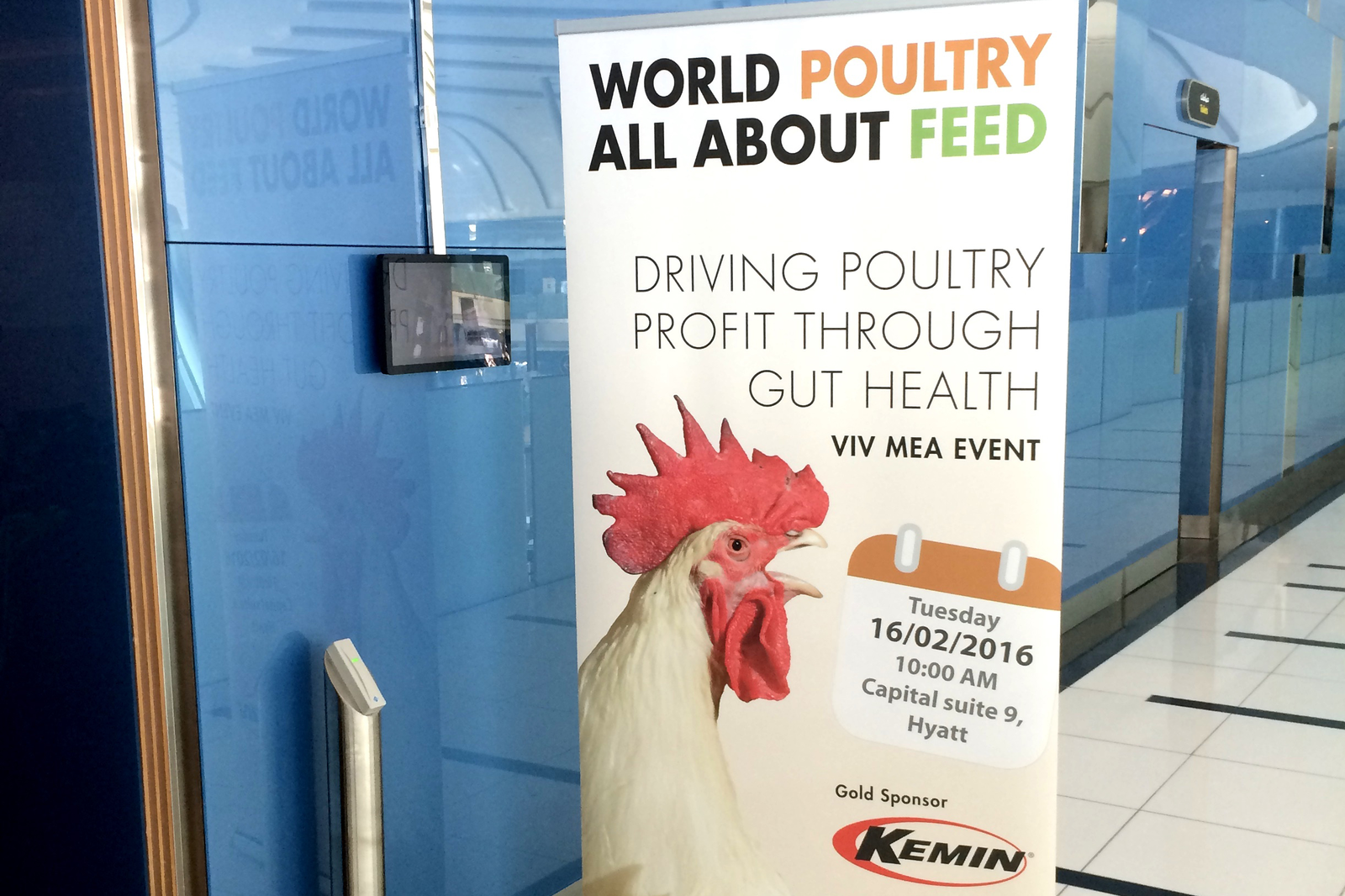
Intestinal health of chickens is a hot topic, as shown by the great number of attendees for the World Poultry and All About Feed event at the VIV MEA. Almost 95 people attended this seminar, sponsored by KEMIN, and kicked off by Professor Mohamed Farran from the American University of Beirut.
In his presentation he addresses the challenges that farmers have in hot regions, such as the MEA region. “Heat stress means that feed intake of the chickens goes down, and energy requirements and water intake go up. We also see effects on gut health, leg problems and shell quality,” Farran explained. Trials showed that feed intake in layers reduced by 5% each time the temperature rose with 1° Celsius. In these studies, also corticosterone levels increases, this is a parameter showing that the animals experience heat stress. He mentioned that ventilation and insulation of the barns are important factors that can help in keeping the temperature down as much as possible. Also nutritional manipulations can be applied, such as prevention of excessive protein, supplying chromium and vitamin C and improving the water quality among others.
The second speaker, Sjaak de Wit, from the Animal Health Service in the Netherlands delved into viruses and their impact on intestinal health. He emphasised that intestinal health is a complex issues and that chickens are often infected by more than one virus types. “These viruses are reducing the villi length in the gut, hence impacting the absorption rate of nutrients and feed intake”, De Wit explained. He gave some recommendations to improve the intestinal health and prevention of viruses:
- make sure the viruses are detected early,
- improve the knowledge of the role of maternally derived antibodies (e.g. vaccination of breeders) and
- feed ingredients can benefit the gut and hence reduce the change of getting virus damage in the gut.

| Left to right: Tom Verleyen from Kemin, Professor Mohamed Farran from the American University of Beirut and Sjaak de Wit from the Animal Health Service in the Netherlands |
The last speaker of the event was Tom Verleyen from Kemin. He had a great overview of the factors that influence intestinal health. “The definition of a healthy gut is complex, but we can state that a healthy gut has predominantly Lactobacillus in it and in a sick gut we see a dominance of Clostridium bacteria,” Verleyen mentioned. He further addressed that gut health problems often start with an oversupply of nutrients and undigested feed in the lumen. Verleyen said: “This can cause a range of effects. For all these steps, certain feed additives can be very beneficial. Think of enzymes (in the first step, to improve digestion) and probiotics and butyrate at a later stage. Also important is to prevent mycotoxins, as these toxins can damage the gut considerably. It is therefore good to apply a mycotoxin binder when needed. He concluded by saying that intestinal health is becoming more important as more countries move away from the use of antibiotics. “But all stakeholders and the industry have to support each other in this, to make it happen and to really reduce antibiotic use.”
VIV MEA is being held until Wednesday February 17. It is the first time that this VIV edition, in the MEA region, is being organised.
Join 26,000+ subscribers
Subscribe to our newsletter to stay updated about all the need-to-know content in the feed sector, three times a week. Beheer
Beheer

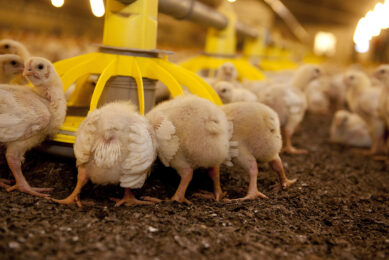
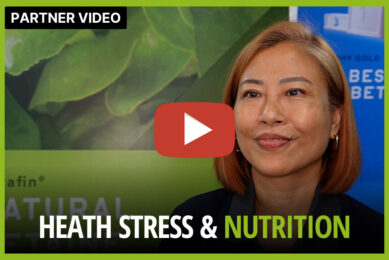
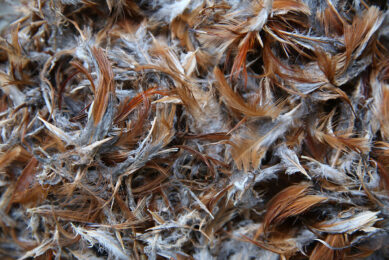
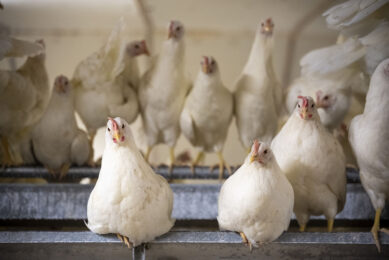




 WP Admin
WP Admin  Bewerk bericht
Bewerk bericht